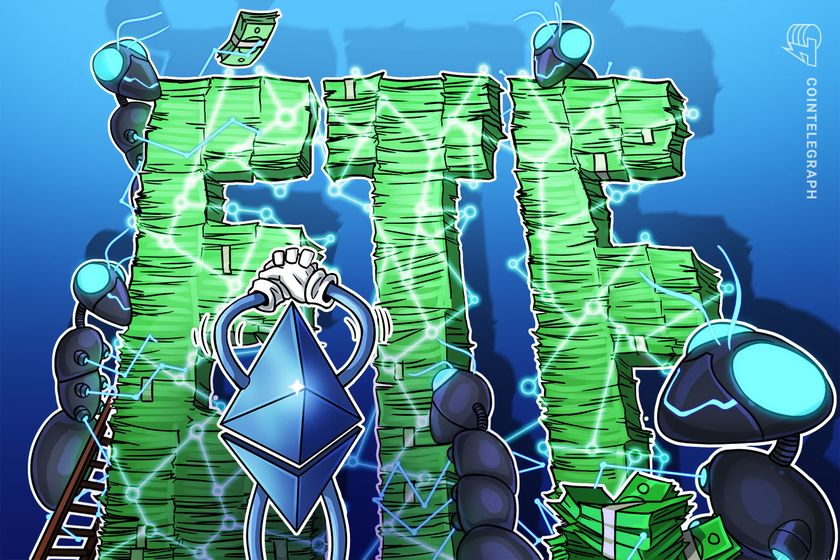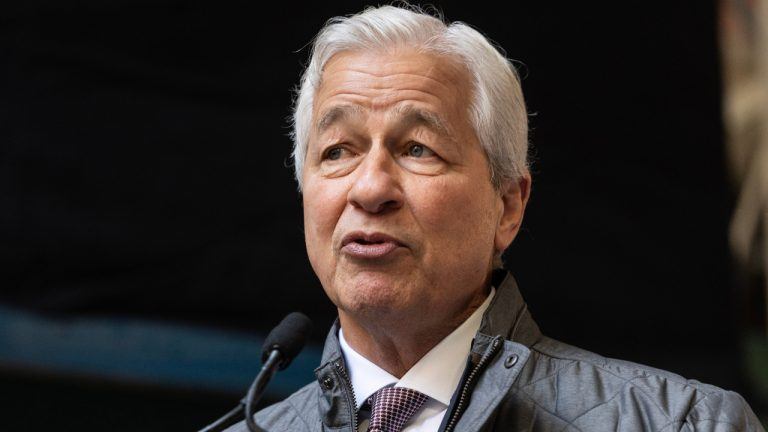Tesla, Bitcoin and the crypto space: The show Musk go on? Experts answer

Here’s what crypto and blockchain industry experts think about Tesla’s recent $1.5 billion investment into Bitcoin.
While 2020 was a significant year for Bitcoin (BTC), the just-begun year of 2021 is already full of great surprises. On Feb. 8, Bitcoin’s price jumped by almost $3,000 in minutes, then it surged 20% in 24 hours — all due to the news of Elon Musk’s Tesla allocating $1.5 billion of its balance sheet to BTC.
The same week, the oldest bank in the United States, Bank of New York Mellon, announced plans to hold, transfer and issue Bitcoin. Mastercard is also planning to support cryptocurrencies in 2021 for its almost 1 billion users. And SEC Commissioner Hester Peirce, commonly referred to as “Crypto Mom” in the crypto community, even underlined the urgent necessity for regulatory clarity due to the recent events in the space.
With PayPal, Tesla, Mastercard, BNY Mellon and others entering the cryptosphere, isn’t it becoming more clear than ever before that digital assets are now part of the mainstream? That their mass adoption has started and it is a matter of the present, not the future?
Last year, Cointelegraph asked experts in the crypto and blockchain industries for their opinions on PayPal’s crypto integration and mass adoption and on the importance of 2020 in Bitcoin’s history. This time, the question is: What does Tesla’s recent $1.5 billion investment into Bitcoin mean for the crypto space in terms of the financial markets, for crypto adoption and brand building, and for the whole industry in general?
Alex Tapscott, co-founder of the Blockchain Research Institute:
“Tesla’s purchase of Bitcoin no doubt sent a shockwave through the corner offices of every chief financial officer and corporate treasurer in America and beyond. One of Bitcoin’s many benefits is that it acts like digital gold, diversifying corporate holdings and lowering currency risk. Every financial executive ought to be sharpening their pencils to understand if and ultimately when they should be buying it.
While Tesla is not the first public company to buy Bitcoin for its treasury, it is by far the most important. How poetic it is that Elon Musk, a space entrepreneur, pushed Bitcoin to its escape velocity in corporate America!
The decision by Tesla follows a slew of high-profile announcements by large companies, which fits a pattern of accelerating institutional and corporate adoption. Equally consequential to the treasury allocation was Tesla’s decision to accept Bitcoin. This follows in the footsteps of several other large innovative firms such as PayPal, Visa and others that are building a superhighway to Bitcoin mass adoption, enabling not only Bitcoin buying and selling but integration into their merchant networks. By the end of 2021, I’d expect many more firms to not only hold Bitcoin but have a real Bitcoin strategy.”
Da Hongfei, founder of Neo and founder and CEO of Onchain:
“This is a very promising sign for mainstream interest and its increasing willingness to embrace blockchain. Moreover, it affirms that blockchain and Bitcoin are here to stay for the future.
Throughout 2020, increasingly more financial institutions invested in Bitcoin, and I am confident that blockchain adoption is accelerating as the global financial paradigm shifts to fully embrace digitization and decentralization. Moving forward, we must continue pushing for effective standards across the industry as well as greater integration to fully deliver on blockchain’s game-changing potential.”
John Wu, president of Ava Labs:
“Tesla’s purchase of $1.5 billion in Bitcoin not only continues the momentum of public companies purchasing crypto but could be a watershed moment that establishes some allocation of digital assets as a cornerstone of a healthy, diversified treasury.
Regardless of industry, businesses should follow these early adopters establishing in-roads to the payment rails and financial infrastructure of the future. That starts with Bitcoin and will steadily expand to projects that are just outside the frame and focused on the programmable, smart asset side of the ecosystem where enterprises can find more use cases beyond digital gold.”
Joseph Lubin, founder of ConsenSys and co-founder of Ethereum:
“The embrace of Bitcoin and Ether by institutional investors and corporate treasury departments in recent months represents a watershed moment for the global economy — the early concrete signs of a paradigm shift in how global business, financial and economic systems will be constructed. They are being rearchitected on a new real-time automated, objective trust foundation, as represented by the Ethereum and Bitcoin networks.
Today, corporate finance departments are learning how to manage BTC and ETH tokens for value preservation, transaction friction reduction and upside, as these systems will grow in size and value dramatically with adoption over the next few years. Tomorrow, their treasuries will plug into the decentralized finance protocols being built largely on Ethereum for borrowing, lending, trading, equity and bond issuance, full lifecycle token management, insurance, prediction markets, trade finance, tokenization and factorization of invoices, loyalty tokens and NFT art that can be projected on the walls of their board rooms. They will do this because they will be able to configure and issue financial instruments without the need for intermediaries, and they will be able to wire up financial flows to suit their needs in real time. And they will do this because that’s where the liquidity is.”
Michael Terpin, founder and CEO of Transform Group:
“Tesla’s bold move to invest $1.5 billion of its treasury into Bitcoin, as well as to accept Bitcoin as payment for Tesla vehicles in some jurisdictions, blows the doors wide open for corporate America and high-net-worth families to seriously consider putting a small part of their net worth in Bitcoin as a store of value, instead of bonds, gold, dividend stocks and commercial real estate, which have been underperforming historical standards.
With only 18.6 million Bitcoin in the world — and perhaps as much as 4 million to 5 million lost or not being offered for sale — there isn’t enough to satisfy the demand of 46.5 million global millionaires, nor 1% to 5% of the estimated $4 trillion of cash on corporate balance sheets in the U.S. alone. Add in 1.8 billion millennials, mostly in countries with broken currencies or banking systems, and one can see that the supply of and demand for Bitcoin are not in balance.
Over time, this demand will trickle down to Ethereum, which already has a large part of the Fortune 500 developing applications on it, as well as innovative cryptocurrency platforms in DeFi and NFTs — and numerous billionaires, including Mark Cuban, have recently hopped on those bandwagons. We are in the year after the halving — what I call ‘Bitcoin summer’ — and parabolic growth has occurred following every four-year halving event so far. This year will likely not be an exception.”
Mike Belshe, CEO of BitGo:
“In the face of the pandemic, domestic inflation and global uncertainty, mainstream businesses have jumped into digital assets with newfound enthusiasm. From public companies like Tesla and Square to funds like Grayscale and the Tudor Group, prominent institutions are increasing their exposure to Bitcoin. In aggregate, these institutions are estimated to be holding over 6% of the 18.6 million Bitcoin in circulation, amounting to over 1.2 million BTC. After Bitcoin surpassed an all-time high of over $48,000 in early February, the total value of these institutional holdings eclipsed $55 billion.
In the last six months, BitGo has onboarded many corporate accounts through the process of education, intelligent market access, asset accounting and reporting, and more — all while keeping assets stored in regulated, qualified custody with the highest levels of security for deep cold storage.
Bitcoin’s mainstream acceptance stands to only grow exponentially as more institutional investors embrace cryptocurrencies, clearing the way for future entrants to follow them. This escalating market demand from large entities will likely continue impacting Bitcoin’s value and may even serve to mitigate its volatility. With the final Bitcoin expected to be mined in 2140 and over $2 trillion of monthly trade volume, there’s still plenty of time to enter Bitcoin — for businesses and individuals alike. Despite the tremendous acceleration of institutional investors, we are likely only at the tip of the iceberg when it comes to mass adoption. Additional corporations and funds are soon to see the success that these first-movers have enjoyed and thus will begin to follow their lead.”
Scott Freeman, co-founder and partner of JST Capital:
“The recent announcement by Elon Musk of Tesla’s investment in Bitcoin is yet another example of the broadening acceptance of Bitcoin, and of digital assets as an asset class in its own right. We are quickly getting to the point where announcements like this will no longer be viewed as ‘news’ and will no longer cause reactions in the market.
Take for example the recent announcement by BNY Mellon, which we think is more important but caused not a stir in the market. Taking a step back, we think the success of Bitcoin, and of digital assets more broadly, is a strong harbinger of the power of global retail-driven innovation in financial markets. Look at the recent activity in GameStop as another example. We think this trend will continue and will raise important policy and regulatory issues that will need to be addressed by governments and central banks around the globe.”
Tim Draper, founder of Draper Associates and Draper Fisher Jurvetson:
“When I tweeted at Elon about accepting Bitcoin three weeks ago, I had no idea he would be so responsive, first by accepting Bitcoin and next by managing his cash by buying some Bitcoin. I expect that the action he has taken will be pervasive, first for the early adopter companies that use OpenNode or the Lightning Network to accept Bitcoin, and next for the chief financial officers of the world to recognize the need to own some Bitcoin to hedge against coming inflation and against further printing of fiat currency by politicians.”
These quotes have been edited and condensed.
The views, thoughts and opinions expressed here are the authors’ alone and do not necessarily reflect or represent the views and opinions of Cointelegraph.
This article does not contain investment advice or recommendations. Every investment and trading move involves risk, and readers should conduct their own research when making a decision.









